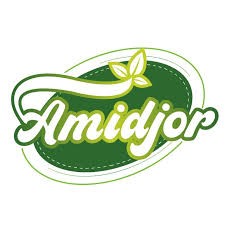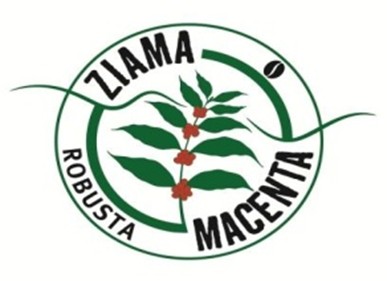Amidjor is a company specialized in agri-food production, processing, and training.

Pierre Damien Mbatezimana is the founder and Managing Director of Shekina Enterprise. Prior to managing Shekina, he ran a restaurant in Kigali, Rwanda, and invented a food warmer to keep the meals hot. The food warmer was then sold or leased to other restaurateurs.

Type: Enterprise
Year of Founding: 2007
Number of Employees: 100 women in collection centres and 45 workers in its processing factory
CEO: Pierre Damien Mbatezimana
Mission
To promote economic agribusiness by processing readily available and accessible local crops into competitive food products on domestic and international markets.
Vision
To be a leading Rwandan food processing company that produces the foremost preferred African food products on domestic and international markets.
Business Model
Shekina is a Rwandan food processing company, created in 2007 to utilise the nutritive value of cassava while avoiding waste due to its high perishability resulting from the high water content of its leaves.
Shekina’s founder has developed a drying technology to produce dried cassava leaves with a shelf life of two years. These are easier and less expensive to transport compared with fresh cassava leaves, which have to be transported by air. Dried cassava leaves need to be cooked for only 30 minutes to evaporate the cyanide they contain, compared with three to four hours cooking time needed for fresh cassava leaves.
Shekina’s founder created a factory using the newly invented drying machine.
The company’s motto, “From Farm to Table”, highlights the value of the whole food processing value chain, from productively exploited soil to crops industrially processed into quality food products.
Shekina is a leader in innovative drying technologies in Rwanda, manufacturing dried and easy-to-prepare products made out of Rwandan cassava leaves, vegetables and fruit, and in exporting this produce to international markets.
Number of Famers
Shekina works with 1500 farmers, of whom approximately 70% are women, formed in five cooperatives. Each cooperative has a specific day to deliver a fixed quantity of leaves, in order to avoid farmers all delivering at the same time and exceeding the capacity of the dryers. The company also provides its farmers with training and planting material.
Each cooperative has a collection centre facility managed by 20 women. Shekina intends to support them by providing an income source, and to develop their self-esteem. Half of their earnings is saved in a bank account to be used as seed money to start their own business.
Relationships with Smallholders
Shekina is a social business focusing on the community and empowering women. It contracts its cassava farmers, as well as workers in collection centres and in its processing factory.
Products Covered and Markets
Shekina dried cassava leaves are processed into two products, which are both nutritive and easy to cook. The products have to be cooked for only five minutes to be ready to eat, and still keep all their nutritional value. Pounded dried cassava leaf is called isombe and sold under the brand name Akeza. The instant product, a mixture of all ingredients used to cook cassava leaves with fish or beef flavour, is sold under the brand name Ala Damiano.
Shekina also makes flour from cassava and other crops:
– Maize flour
– Millet flour
– Peanut flour
– Roasted soybean flour
– Sorghum flour
– Whole wheat flour
– Cassava flour
– Fermented sorghum flour
– Akeza mix flour (millet, maize, sorghum, soybeans)
More recently, Shekina has begun to process dried vegetables such as amaranth, pumpkin and spinach and, later, dried fruits like pineapples and bananas.
Markets: Domestic, regional (Burundi, Congo , Kenya, Tanzania, Uganda,) and international (Belgium, Canada, Sweden, UK, USA). About 70% of the products are exported.
– Main services
Drying and processing cassava leaves, fruit and vegetables, flours.
Selling and exporting packaged food.
– Certifications
HACCP-certified and at the final stage of certification by the International Organization for Standardization.
Innovations: Milestones and Expansion Plans
Shekina works with a research institute in Rwanda to develop its product range and drying technologies. The driers designed for drying the cassava leaves also work for drying vegetables, but not well for fruit. With the support of Oxfam, the National Agricultural Export Development Board (NAEB) and the Belgian Technical Cooperation, a new drying technology has been developed. The new dryers are a modified version of driers produced by the South African company Dryers for Africa: they are not exclusively powered by electricity as they use both electricity and a wood furnace. By taking into account the high electricity prices in Rwanda, this new technology lowers the production cost and revolutionises the production of dried fruit in Rwanda.
Shekina’s founder started the business with his own savings but developed it with bank loans. Obtaining funding without collateral for the activity expansion has been, and remains, difficult.
– Needs for upscaling (technical, financial, policy…)
In order to meet worldwide growing demand for its processed cassava products, Shekina needs financing to further invest into research and technology. The main current challenges are accessing capital for expansion, and the lack of quality packaging materials on the local market.
Shekina plans to carry out research on more vegetables to bring to the market as dried products, to maximise the use of the drying machines during the dry season when there are fewer cassava leaves. It also wants to increase its processing capacity and use the waste of cassava leaves for biogas to substitute the wood and so reduce its environmental footprint.
The company also wants to import cassava from other African countries to increase the input volumes.
Lastly, Shekina’s founder is looking to invest in online markets as its products are currently not directly sold online (although some distributors do sell them on Amazon).
Success Factors and Lessons Learned
Value-addition is essential to penetrate global markets, as it extends the product shelf life and eases commercialisation, particularly on international markets, as the product can be transported by post, road, sea and air. Such innovations have turned cassava into a major cash crop.
Additional Resources
Join our Forum to discuss and explore how to encourage innovations across agricultural value chains to transform food systems in African, Caribbean and Pacific countries and beyond, promote sustainable agriculture & leverage investments. Share insights, ask questions, and collaborate on innovative solutions for a greener future.
Recent Business Profiles

Amidjor is a company specialized in agri-food production, processing, and training.

ADECAM is a community-driven organisation in Guinea dedicated to protecting, promoting, and developing the Ziama-Macenta Geographical Indication coffee, while supporting smallholder producers...

Tac Maz Sustainable Ventures is a climate-smart social enterprise in Malawi supporting smallholder farmers through sustainable poultry and horticulture production.

Bono Salus is a Zimbabwean woman-led agribusiness specializing in urban hydroponic farming of microgreens.

The Nut Place is a Nigerian food innovation company that processes locally grown edible nuts into gluten-free, nutrient-dense products to improve nutrition, reduce post-harvest losses, and promote...